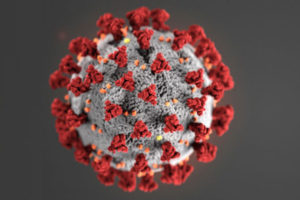Provide data on children affected by COVID-19 – Institute
 The Institute for Human Rights and Development in Africa (IHRDA) has urged government and the Ghana Health Service to make data available on children who have been impacted by the COVID-19 pandemic.
The Institute for Human Rights and Development in Africa (IHRDA) has urged government and the Ghana Health Service to make data available on children who have been impacted by the COVID-19 pandemic.
The Institute said such data would enable policy makers and human rights organisations, particularly child rights actors, to develop child-specific interventions to mitigate their plight.
Speaking in an interview with the media on the side-lines of a three-day workshop for lawyers and child rights activists in Accra, Mr Edmund Amarkwei Foley, the Director of Programmes, IHRDA, said children were one of the most vulnerable groups amid the pandemic and all necessary interventions must be provided to ensure their development.
The workshop, organised by IHRDA, in collaboration with Commonwealth Human Rights Initiative (CHRI), was aimed at educating and empowering child rights activists to take action towards holding the state accountable to its obligations on child rights.
It was also to provide participants the opportunity to identify certain key issues affecting children in Ghana, which they could take up with the state, especially at the African Union Committee for redress.
It was on the topic: “Litigating Child Rights Cases before the African Human Rights System,” and attended by representatives of the National Commission for Civic Education, Commission on Human Rights and Administrative Justice, civil society organisations, and human rights lawyers and activists.
Mr Foley said: “When the COVID-19 pandemic broke sometime in April the special repertoire of the African Union on Covid-19 and its Impact on Children raised the issue of children not being captured in the statistics.”
“…In a lot of the cases we are hearing we are not disaggregating the impact on children. We are not asking them to mention children’s names but we want to know how many children are being affected and so at the very basic level with COVID-19 we want to know the segregated data on children,” he said.
Mr Foley urged the Ministry of Gender, Children and Social Protection to put into operation the numerous child rights policies to mitigate their plights and promote their wellbeing.
“We have the Children’s Act, the Family Welfare Policy and the Justice for Children Policy. We expect to see progressive implementation of these three core documents from the Ministry of Gender, Children and Social Protection,” he said.
While commending government for having a good track record in the implementation of human right treaties, Mr Foley urged it to do more to eliminate outmoded cultural practices such as trokosi and child marriages, which infringed on the rights of the child.
Source: GNA
